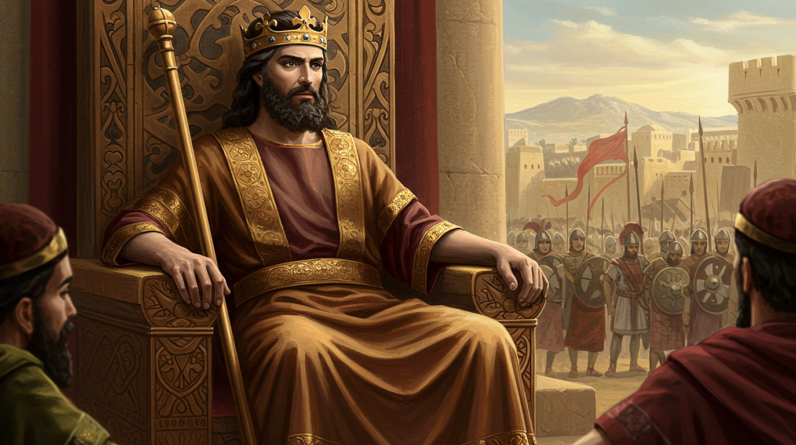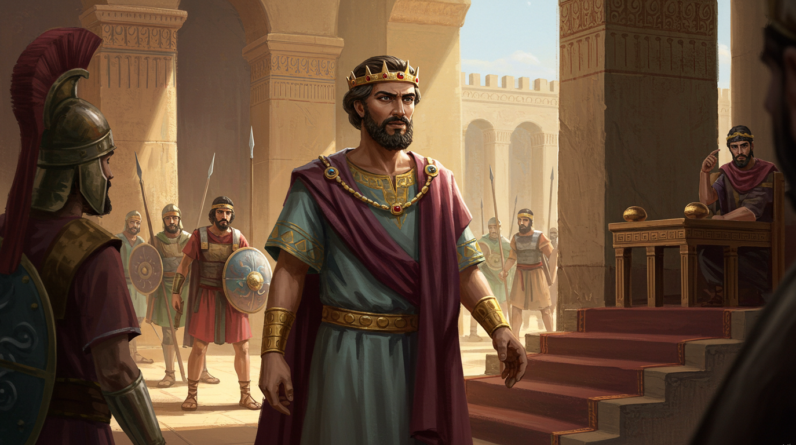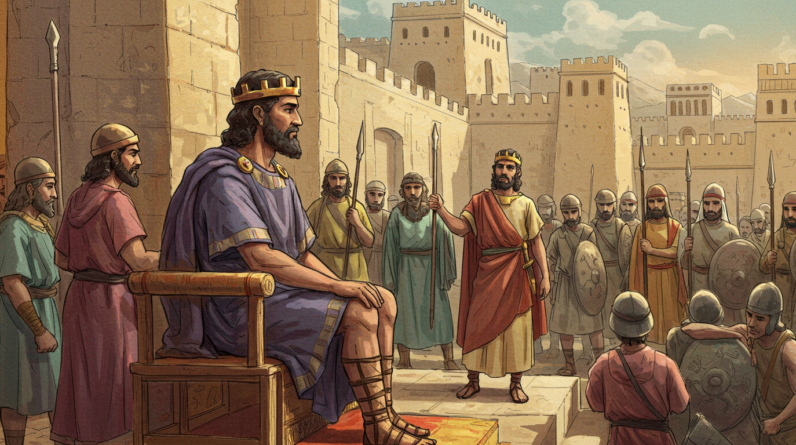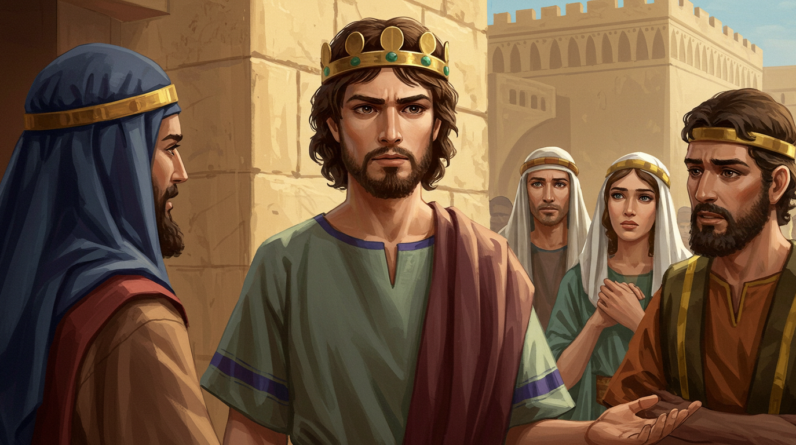Explore the complex reign of Ahab, Israel’s defiant king who challenged spiritual norms, forged strategic alliances, and left a lasting yet controversial legacy.
Ahab: The King Who Provoked Israel
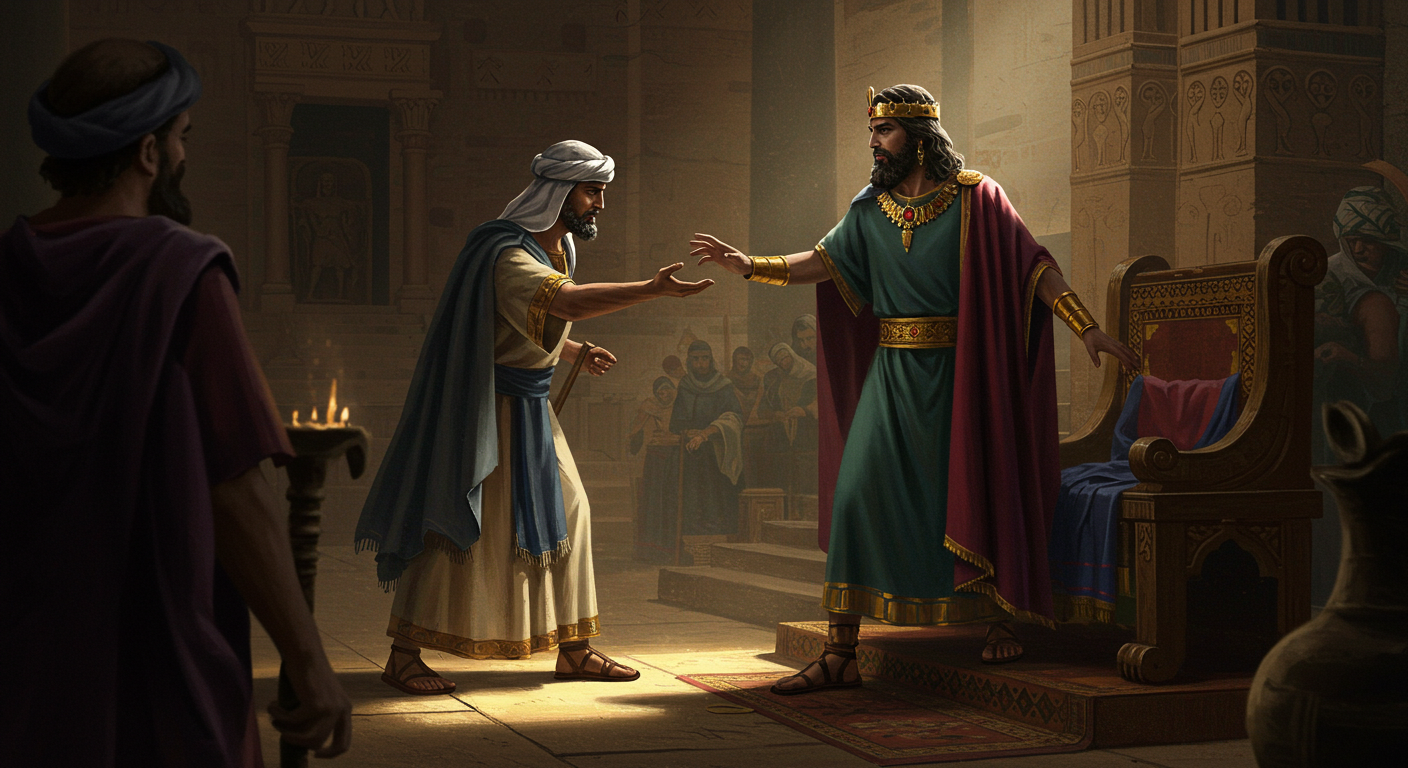
I. Introduction
Have you ever wondered what drives a man to become one of the most controversial figures in his nation’s history? Ahab was a king whose name has become synonymous with defiance and turmoil in ancient Israel. His story remains a compelling narrative that challenges us to look beyond the pages of history and question the motives and choices that define leadership.
Brief Overview:
Ahab, son of Omri, ascended the throne as the seventh king of Israel and left a profound impact on the biblical narrative. His reign was marked by notable achievements, complex alliances, and infamous provocations. Ahab is perhaps best remembered for his marriage to Jezebel, the daughter of the King of Sidon, and his subsequent promotion of Baal worship in Israel. His story is a tapestry of religious, political, and personal conflict—a narrative that illustrates the dynamics of power and faith in a nation at a crossroads.
Thesis Statement:
Ahab’s reign encapsulates the turbulent intersection of political ambition and religious tension, offering lessons on the pitfalls of leadership driven by personal desires and the consequences of forsaking foundational values.
II. Historical and Cultural Context
Israel in Ahab’s Time:
During Ahab’s reign, Israel was a nation in flux. This was a time of significant tribal fragmentation, external threats from neighboring kingdoms, and a complex spiritual climate characterized by a blend of worship practices. The kingdom found itself frequently at odds with the kingdom of Judah to the south and various other powers such as Aram-Damascus. The socio-political landscape was both a challenge and an opportunity for a king who sought to expand his influence and secure his legacy.
Setting the Stage:
The ascent of Ahab to the throne came at a time when the pressures of maintaining sovereignty and addressing internal disunity necessitated decisive leadership. It was against this backdrop that Ahab sought to solidify his power and exert his influence over Israel. Whether through military campaigns, such as those against the Arameans, or strategic marital alliances, Ahab’s actions were significantly shaped by the socio-political demands of his era. However, these same conditions ultimately set the stage for his provocation of Israel, both religiously and spiritually.
III. Biographical Overview
Early Life and Calling:
Ahab’s early life remains largely undocumented, but he emerged on the historical stage as a powerful figure indebted to his father, Omri, who had established a strong foundation for the kingdom. Ahab’s ascent to leadership began upon Omri’s death when he assumed the throne and quickly began to chart his path. Notably, Ahab’s marriage to Jezebel was both a political and cultural union that would directly influence his reign and the spiritual trajectory of Israel.
Major Milestones and Events:
- Marriage to Jezebel: This alliance brought increased political power and wealth to Israel but also introduced the controversial worship of Baal. This religious syncretism was a defining aspect of Ahab’s reign.
- Battle of Qarqar: Ahab participated in this monumental battle against the Assyrians, showcasing his military prowess and strategic alliances with other Levantine kingdoms.
- Conflict with Elijah: Among the most famous narratives from Ahab’s reign is his ongoing conflict with the prophet Elijah, who opposed his religious policies and pronounced divine judgment upon his house (1 Kings 18:16-40).
IV. Key Biblical Narratives and Passages
Primary Scripture References:
The narrative of Ahab’s life is primarily located in the books of Kings, beginning in 1 Kings 16:29-33, where his introduction sets the stage for his turbulent reign. Several pivotal events are highlighted within the biblical text, such as:
- The challenge on Mount Carmel (1 Kings 18).
- The Naboth’s Vineyard incident (1 Kings 21).
- His end at the Battle of Ramoth-Gilead (1 Kings 22:29-37).
Contextual Analysis:
These narratives are crucial not just for understanding Ahab’s life but also for their theological implications. Ahab’s story concurrently illustrates the influence of divine prophecy through figures like Elijah and the peril of deviating from Yahweh’s covenant. Despite Ahab’s military successes and economic improvements, his reign is often seen through the lens of his religious apostasy and its consequence on Israel’s spiritual fidelity.
V. Leadership Qualities and Challenges
Core Leadership Traits:
Ahab was undoubtedly a complex leader. Among his qualities were strategic foresight and military prowess, demonstrated in his alliances and campaigns. However, his leadership was markedly marred by his moral failings, particularly his susceptibility to Jezebel’s religious influences and his willingness to compromise Israel’s religious integrity for political gain.
Challenges and Controversies:
Ahab’s most defining challenge was navigating the contentious religious landscape. His introduction of Baal worship incited significant conflict with Israel’s prophets and provoked God’s displeasure. His name is often associated with moral and spiritual failure, irrevocably linked to his controversy with Elijah, who stands as a moral counterpoint to Ahab’s idolatry. These stories illustrate the complex interplay of faith, power, and responsibility that underscored his reign.
VI. Legacy and Impact
Immediate Impact:
Ahab’s reign, despite its controversies, left an indelible mark on Israel. His military campaigns and construction endeavors contributed to Israel’s strength and expanded influence in the region. However, his religious policies led to profound internal divisions and set the stage for a spiritual conflict that would simmer long after his death.
Long-Term Influence:
Ahab’s legacy is remembered both for its cautionary lessons and as a pivotal moment in Israel’s spiritual journey. The return to Yahweh worship under subsequent leaders underscores the long-term impact of his policies and the fleeting nature of his innovations. Ahab’s life continues to serve as a potent reminder of the dangers of forsaking foundational values for short-term gains.
Modern Relevance:
Ahab’s story holds relevant lessons for contemporary leaders about the dangers of sacrificing core principles for political alliance or expediency. It reminds us that effective leadership requires a balance of political acumen and ethical integrity, a lesson as pertinent today as it was in ancient Israel.
VII. Scriptural and Scholarly Analysis
Comparative Analysis:
Scholarly interpretations of Ahab’s life vary; while some focus on his political successes, others critique the spiritual decline under his rule. Comparison of the accounts in Chronicles and Kings reveals differing emphases—Chronicles often focus on religious failures, while Kings provide a broader political narrative.
Theological Implications:
Ahab’s narrative invites theological inquiries into divine judgment, human agency, and the concept of repentance. His story raises questions about how leadership aligns or diverges from the divine will and highlights the prophetic role in guiding and correcting the path of misguided rulers.
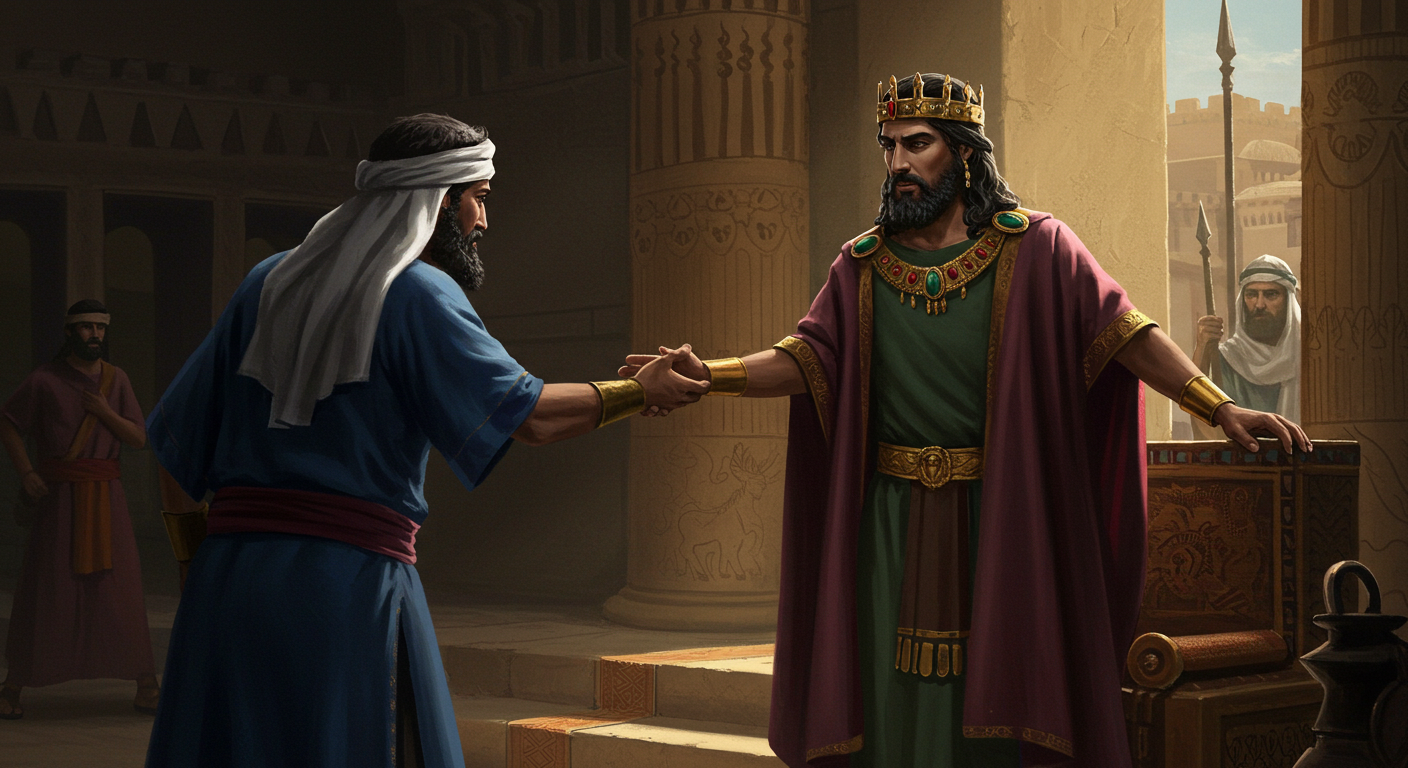
VIII. Conclusion
Summary of Key Points:
Ahab’s reign was characterized by a blend of political savvy and spiritual divergence. His leadership provided stability and regional influence but also brought religious upheaval and dissent. Ultimately, Ahab is remembered for the spiritual challenges he posed to Israel and his complex legacy as both a strong ruler and a flawed figure.
Final Reflections:
Reflecting on Ahab’s multifaceted legacy provides a clear illustration of the complexities inherent in leadership—a saga of ambition, frailty, and conflict that continues to teach us about the enduring significance of integrity and faithfulness.
Call to Reflection or Action:
Considering Ahab’s story challenges us to reflect on our own values and the leaders we choose to follow. How do their actions align with their professed values, and what are the long-term implications of their choices? For further exploration of Ahab’s era, consider diving into the related narratives of the prophets Elijah and Elisha for additional depth and understanding.
Acknowledgment: All Bible verses referenced in this article were accessed via Bible Gateway (or Bible Hub).




